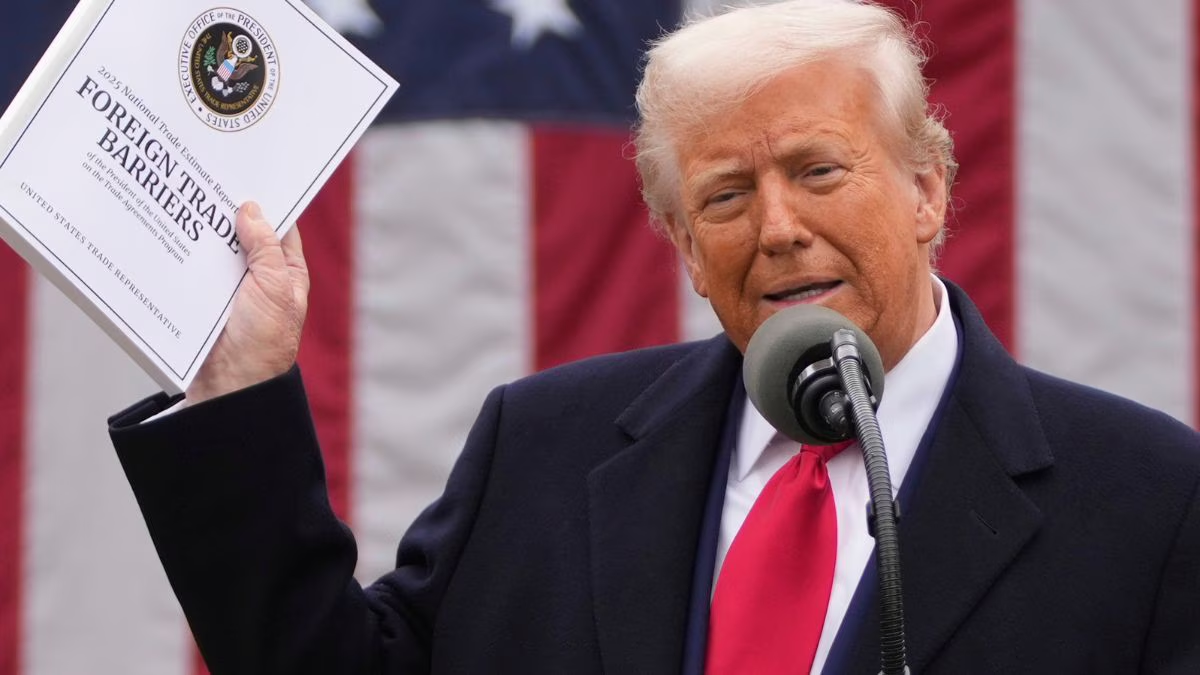
Pic Credit: Firstpost
President Trump has made bold claims that the revenue generated from his sweeping tariff policies could help pay down the United States’ massive national debt and might even fund a public dividend for citizens. However, economic experts and fiscal analysts caution that while tariffs are bringing in record revenues, their impact on the $37 trillion debt is far more limited than these claims suggest.
Tariff collections have surged recently, with government receipts reaching historic highs in 2025. Forecasts estimate these tariffs could generate around $2.5 to $2.8 trillion over the next decade. Yet, experts emphasize that this figure, although substantial, still represents just a small portion of the total federal debt, which continues to grow due to ongoing budget deficits and rising costs.
The reality is that tariff revenues alone will not cover the government’s mounting expenses. For instance, monthly tariff income currently falls short of the interest payments on the national debt. Moreover, tariffs effectively act as a hidden tax on American consumers and businesses, raising the cost of imported goods. This added economic burden can slow growth, reduce incomes, and ultimately decrease other types of tax revenue that are vital to balancing the budget.
The Congressional Budget Office and other independent analysts have also pointed out that while tariffs might make a modest dent in budget deficits if maintained long term, they come with potential downsides including lower wages and slower economic expansion. Legal and political uncertainty surrounding tariff policies further complicates their future as a stable source of federal revenue.
In short, tariffs bring in meaningful money but are no silver bullet for America’s fiscal challenges. The vision that tariffs alone can drastically reduce debt or fund new public dividends oversimplifies the nation’s complex budget realities. As the debate over trade and fiscal policy continues, it remains clear that tariffs are just one tool—and not a cure-all in shaping the country’s economic future.






